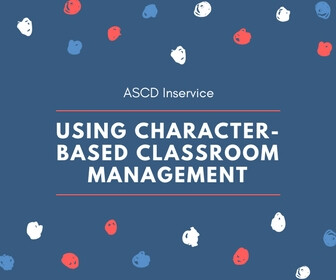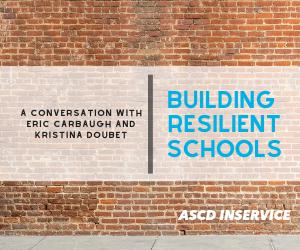Teachers are charged with leading and navigating the emotional climate of the classroom. As a teacher, you set the stage by establishing norms and expectations: academically, behaviorally, and social-emotionally. This is especially vital for educators to recognize now. A recent survey magnified the importance of social-emotional learning (SEL) for educators themselves by identifying burnout as the number one problem facing teachers today. Just like students, educators need to be optimally equipped to not only cope but thrive when naming and managing the emotions that accompany stressful situations.
The CHECK Framework
CHECK, a framework based on our work (Emily Mofield and Megan Parker Peters), is one tool that can help. CHECK was originally designed to support students in handling stress, disappointment, or anxiety. In this blog post, we adapted it to help teachers and administrators address their own SEL needs in moments of stress and to provide tools for both immediate reflection and deeper reflection later on. These steps can supply a teacher’s toolbox for promoting daily, short-term, and long-term well-being.
(C) Control vs. No Control
Determining what you can and cannot control is a powerful first step in managing stress. When faced with challenging situations in the classroom, such as student misbehavior, it is important to maintain your composure as you respond to not escalate the issue. The simple act of taking three breaths before responding can initiate a moment of pause that allows you to think more clearly. This exercise engages the rational thinking needed to sort through situations, keep your perspective, and respond in a way that promotes a healthy climate. For example, you might remind yourself in the moment that student behavior is not usually about you—but how you respond has the power to resolve or reinforce the situation.
Stephen Covey’s sphere of influence provides structure for teachers to reflect further. Writing down frustrating, stressful, or discouraging situations can make emotions clearer, freeing you to focus on the aspects of a situation you can control. For example, you may not be able to control which grade-level you are assigned to teach, but if you feel strongly about the situation, you can approach your administrator with your concerns, doing what you can to have some influence. When situations are sorted by your degree of control, you can make progress toward impacting your own sphere of influence. Identifying these situations and the extent to which you can control them can also help you more readily recognize in the moment where to focus your attention.
(H) Hear What You are Saying to Yourself
Pay attention to your thoughts and assumptions by taking a moment to listen to what you are telling yourself about setbacks, obstacles, and discouraging situations. In his book, Learned Optimism, Martin Seligman describes this through the 3 P’s. Do you perceive a situation as permanent (“It is always like this”), pervasive (“This happens in so many other areas of my life, too!”) and personal (“This all my fault”)? Viewing the situation as changeable, context-specific ("This is only one circumstance”), and not inherently your fault can be a more adaptive approach. To encourage resilience associated with perseverance, self-agency, and confidence, Mofield provides a helpful mantra, outlined in the book Unlocking Potential:
It’s this situation, this time,Things can change, I will rise,Is this something I can control?If it is not, I will let go.
(E) Emotional Awareness
As you create space for intentional pause and listen to your thoughts and assumptions, can you identify specific, underlying emotions? According to Mark Brackett and Brené Brown, most adults can identify no more than three emotions in themselves. A tool such as a Mood Meter or an emotion color wheel can expand your emotional language and awareness.
Many emotions have underlying causes that we do not always connect with. For example, if you feel anger in your classroom, pause and ask yourself, “Why?” Underlying anger is often borne from fear or perceived injustice. Is the student’s misbehavior violating a script you have of how students should act in the classroom or do you feel threatened that the student’s misbehavior may negatively impact your evaluation or even your job? Recognizing that emotions have underlying causes can help you clarify your thinking, recognize your triggers, and prevent damaging emotional responses.
(C) Challenge Your Thoughts
Teachers are not immune to imposter syndrome, that nagging feeling that you just don't have what it takes to be “good enough.” These internal messages are especially potent when connected to fear of failure. Internal criticisms like, I can’t even control my students, how can I ever teach this class? can lead you to question whether to remain in the profession.
Researchers have described self-compassion as a potent way to silence the inner critic and promote personal well-being. Considering what you might say to a friend and applying that same compassion to yourself may not change the situation, but it can counter destructive patterns of thinking.
(K) Know a Plan
Knowing immediate next steps can help bring a sense of control to any situation; taking an initial action step jump-starts momentum to move forward. This first action step might be to send an email, make a list, look up a resource, or ask a colleague a question. A key to resilience is knowing there is more than one option to explore; this can help alleviate feeling stuck.
Reflecting on the question, “What if this plan doesn’t work?” can help you persevere through a difficult situation by spurring you to consider alternatives and anticipate obstacles. And recalling your personal “why” can be a powerful way to energize your thoughts and realign your focus. Remembering why you decided to become a teacher in the first place can often provide the motivation to persist and activate the creative resolve needed to overcome obstacles.
Modeling Emotional Competency
As an educator, you are faced with daily systemic, professional, and personal challenges. Many of these challenges are outside of your control, and we acknowledge the need to keep advocating for long-term solutions. However, we are hopeful that you can continue your journey to support students by using CHECK to heighten self-awareness, regulate emotion, and focus on your passion for student learning. Though you cannot predict the multitude of stressors in an ever-changing education climate, reflective skills can create, maintain, and model emotional competencies so you are personally equipped to care for yourself and those around you.





